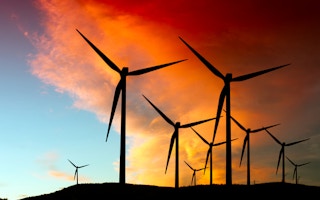George Carlin always called people on their BS. He once railed against the idea of “saving the earth,” pointing out that the Earth will be fine with or without us. “The planet isn’t going anywhere. We are! … The planet’ll shake us off like a bad case of fleas.” All that would be left of us, he said, was maybe some Styrofoam.
The idea that the earth needs humans to thank it and care for it is kind of funny. So Earth Day is kind of a quaint idea. And also strange to think that we might only value the spinning ball we’re totally reliant on for a single day each year. Imagine if you only appreciated your mother on Mother’s Day, or your significant other on Valentine’s Day. It would not bode well for your relationships.
As many pundits will point out every year at this time, we need to value Earth every day. And that’s even more so for the business community. But we shouldn’t thank the version of “Earth” used for show, pictured on glossy corporate citizenship reports, or the theoretical one that many people seem to think only exists in national parks we go visit. No, business needs to value the Earth like it does its balance sheet. The planet provides the collective assets on the balance sheets of our global economy: that is, it’s quite literally the giver of everything required for our economy and society. It’s almost absurd to have to say this, but without a planet, there is no business.
While this appreciation should infuse all our days, it is useful to take this one day and focus our thinking. It’s a good time to stop and analyze specifically what underpins your business. You’re likely doing something like this regularly anyway – one of those retreats with executives, facilitators, and sticky notes to think through business strategy, think “outside the box,” co-create, or whatever is hot in brainstorming that year.
So take a day this week to think hard about how the planet underpins the business, and how your company and sector should deal with that reality. Consider three steps. First, ask some leading questions: What do climate change and extreme weather mean for your business, your customers, and your supply chain? How do growing resource constraints like water shortages, or rising commodity prices, affect your value chain and your margins?
Then paint some pictures and scenarios of sectors under pressure already: Consider what food and agribusiness businesses are going through dealing with ongoing drought in California. Or think about the choice forced on apparel makers and retailers by a 300% rise in cotton prices over one recent two-year period: either pass along higher costs and reduce sales, or take a hit to margins. Then ask yourself what could happen to your sector to shake things up this much.
“
If we don’t protect the assets on the balance sheet of the world, we go bankrupt and stop functioning
Finally, ask some heretical questions. Could we operate without fossil fuels and only renewable energy, or without using water? (Companies like Apple and IKEA are already well on their way to 100% renewables.) What if we tried to build a circular economy and took back everything we sold at the end of the product’s life? How could we fundamentally change how our business operates to navigate and profit from the pressures we’re facing?
Understanding these scenarios and realities, and preparing for them, is now a critical skill for business success. But how many companies use Earth Day (or any day) that way? Very, very few. For most of the last 44 years, most companies have spent Earth Day – if they acknowledge it at all – planting some trees or announcing some nice (but small) initiatives that protect some land or support environmental causes. Those are lovely philanthropic choices. And to be fair, companies are increasingly announcing much larger moves, like IKEA’s recent purchase of a wind farm to supply 165% of the electricity needed by its US operations.
But most companies clearly miss the point of what “Earth” really means to business. The planet – with all the metals, fiber, food, air, water, and stable climate it provides – is required for our existence. So ensuring that this stream of support continues, or that the asset base stays healthy, needs to be the first priority for society and business. As the founder of the UK’s Forum for the Future, Jonathan Porritt, has written, “Not only is the pursuit of biophysical sustainability nonnegotiable, it’s preconditional.” I love the startling, brutal simplicity of that word preconditional. In other words, if we don’t protect the assets on the balance sheet of the world, we go bankrupt and stop functioning.
So today let’s not call it Earth Day. How about “Fundamental Underpinnings of Our Business’s Existence and Success Day.” It’s not as catchy, but it is more accurate.
Andrew Winston is the co-author of the best-seller Green to Gold and the author of Green Recovery. His new book, The Big Pivot, was released in April. He advises some of the world’s biggest companies on environmental strategy. This post originally appeared in the Harvard Business Review Blog Network.










